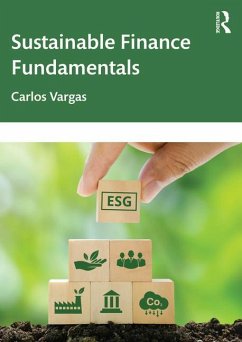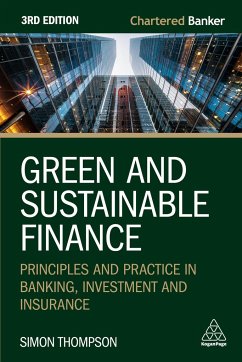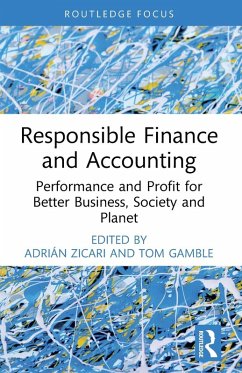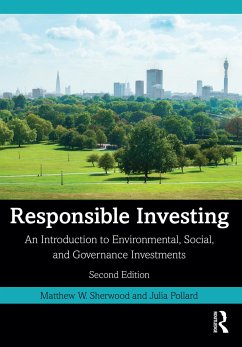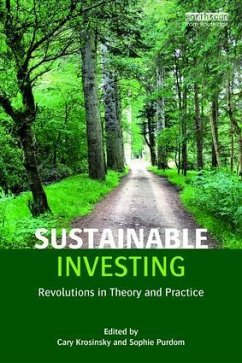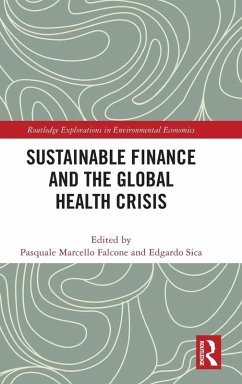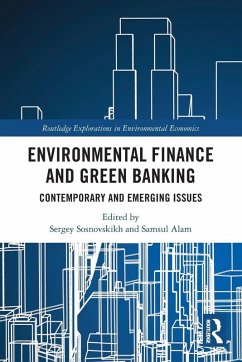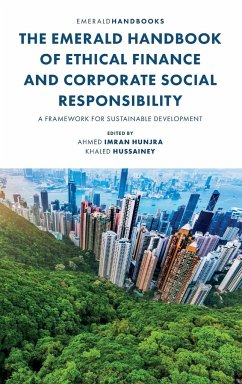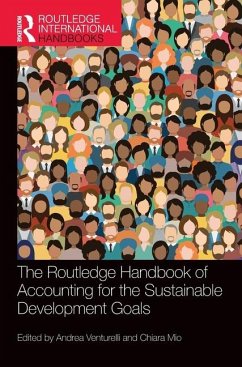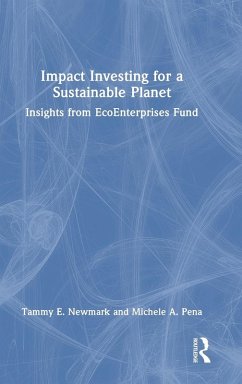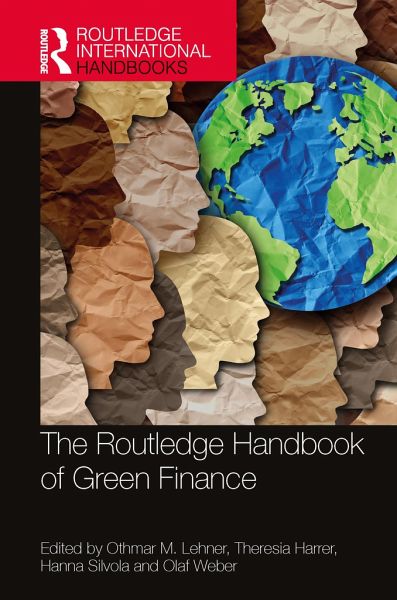
The Routledge Handbook of Green Finance
Versandkostenfrei!
Versandfertig in 6-10 Tagen
230,99 €
inkl. MwSt.
Weitere Ausgaben:

PAYBACK Punkte
115 °P sammeln!
Green finance is heralded in theory and practice as the new panacea - the ideal way to support the green transition of businesses into more sustainable, environmentally responsible forms, by means of incentivized financial investments. This handbook brings together a variety of expert scholars with industry specialists to offer the most authoritative overview of green finance to date, presenting the current situation in the field. It focuses on green finance in a comprehensive way, discussing its characteristics, underlying principles, and mechanisms.The book carefully illuminates the issues s...
Green finance is heralded in theory and practice as the new panacea - the ideal way to support the green transition of businesses into more sustainable, environmentally responsible forms, by means of incentivized financial investments. This handbook brings together a variety of expert scholars with industry specialists to offer the most authoritative overview of green finance to date, presenting the current situation in the field. It focuses on green finance in a comprehensive way, discussing its characteristics, underlying principles, and mechanisms.
The book carefully illuminates the issues surrounding green finance and delineates its boundaries, mapping out and displaying the disparate voices, traditions, and professional communities engaged in green and sustainable finance activities. Specifically, it examines the "environmental" in the environmental, social, and governance (ESG) measurements, while also discussing the interplay between each measurement. It develops a range of analytic approaches to the subject, both appreciative and critical, and synthesizes new theoretical constructs that make better sense of hybrid financial relationships. Furthermore, the handbook illustrates existing best practices and theories, and critically examines the gaps to derive the necessary future research questions. It highlights the essential issues and debates and provides a robust research agenda. As such, it helps to create an effective market for the various green financing instruments through clarification and standardization.
This handbook will be the standard reference work for a broad audience, encompassing scholars, researchers, and students but also interested professionals, regulators, and policymakers wishing to orient themselves in a rapidly developing and increasingly topical field.
The book carefully illuminates the issues surrounding green finance and delineates its boundaries, mapping out and displaying the disparate voices, traditions, and professional communities engaged in green and sustainable finance activities. Specifically, it examines the "environmental" in the environmental, social, and governance (ESG) measurements, while also discussing the interplay between each measurement. It develops a range of analytic approaches to the subject, both appreciative and critical, and synthesizes new theoretical constructs that make better sense of hybrid financial relationships. Furthermore, the handbook illustrates existing best practices and theories, and critically examines the gaps to derive the necessary future research questions. It highlights the essential issues and debates and provides a robust research agenda. As such, it helps to create an effective market for the various green financing instruments through clarification and standardization.
This handbook will be the standard reference work for a broad audience, encompassing scholars, researchers, and students but also interested professionals, regulators, and policymakers wishing to orient themselves in a rapidly developing and increasingly topical field.





